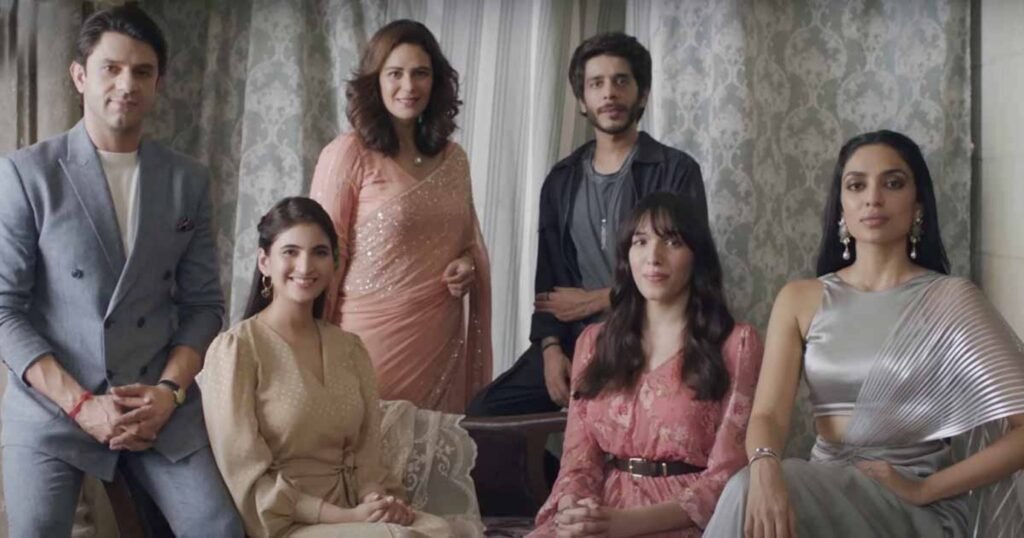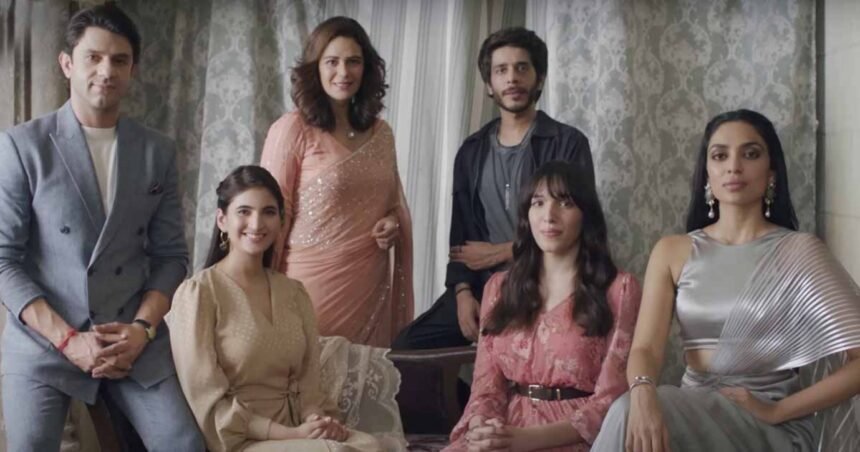Introduction:
A Worthy but Patchy Follow-Up
The highly anticipated “Made in Heaven2” has taken viewers on a rollercoaster ride of emotions, as Zoya Akhtar and Reema Kagti once again invite us into the world of lavish Indian weddings, while also delving into the complex personal lives of the characters. While the series offers well-rounded character arcs and thought-provoking themes, the episodic issue-based format sometimes feels imposing and lacks the nuanced touch it deserves.

Themes that Resonate: Relationships and Love in the Modern World
The strength of “Made in Heaven” lies in its ability to capture the intricacies of relationships and love in the modern world. Neeraj Ghaywan’s episode, centered around Radhika Apte’s Dalit bride, stands out for its depth and sensitivity. This episode opens a discourse around her politics, showcasing her voice without imposing the writer or director’s perspective. It’s here that the series truly shines, allowing for meaningful exploration of complex issues.
Struggles of Identity: A Journey Towards Authenticity
The weddings, while beautifully designed and executed, sometimes feel more curated than organic. However, the Buddhist wedding episode, directed by Ghaywan, stands out for its soulful portrayal of a woman’s struggle for identity. Unlike the tokenistic portrayal of a lesbian wedding, the Buddhist wedding is a culmination of the character’s journey and a powerful statement against tradition. This contrast highlights the potential for deeper storytelling within the series.
Love in Simplicity: Hilarious and Heartfelt Moments
The series succeeds when it shifts focus from grand conflicts to simpler cracks in love. Neeraj’s episode with Neelam Kothari and Samir Soni as a real-life couple navigating their children’s wedding is hilariously charming. Additionally, the subversion of gender dynamics in the series finale adds depth to the characters and serves a larger purpose. The portrayal of two Bollywood actors marrying each other for optics adds a touch of realism, making their love story relatable and engaging.
Character Exploration: Struggles and Triumphs
Arjun Mathur’s portrayal of Karan is a highlight, capturing his messiness and frailties with raw authenticity. Vikrant Massey’s Nawab is composed and restrained, while Sobhita Dhulipala’s complex character keeps the audience guessing. Mona Singh and Trinetra Haldar deliver standout performances, with Trinetra breaking barriers as a transwoman actor. Her character, Mehek, is a testament to the show’s potential for meaningful representation.
Concluding Thoughts: A Blend of Patchiness and Promise
While “Made in Heaven” Season 2 boasts captivating character arcs and heartfelt moments, its episodic issue-based format can sometimes feel heavy-handed and disjointed. The series excels when exploring the intricacies of love and relationships, as well as when giving a voice to characters like Mehek. As fans eagerly anticipate what lies ahead for Karan, Tara, Bulbul, and Mehek, the series should consider evolving its format to truly elevate its storytelling potential in Season 3.







